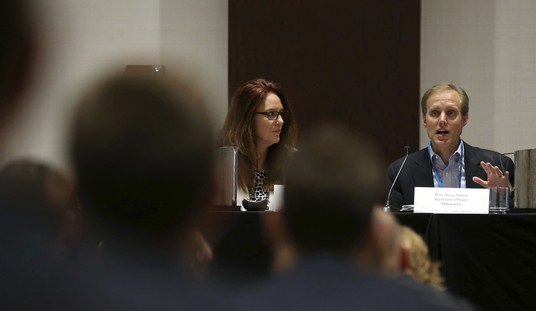Call it Dueling Pollsters. Early today, Quinnipiac’s poll of 2,311 registered voters indicated that they want to see tax increases included in any deal to raise the debt ceiling. Rasmussen polled 1,000 likely voters and found the exact opposite, with 55% opposed to any new taxes in a debt-ceiling increase deal:
As the Beltway politicians try to figure out how they will raise the debt ceiling and for how long, most voters oppose including tax hikes in the deal.
Just 34% think a tax hike should be included in any legislation to raise the debt ceiling. A new Rasmussen Reports national telephone survey finds that 55% disagree and say it should not.
The difference might be in the way the questions were asked, being mindful of the Pollster-in-Chief’s warning on survey language. Rasmussen’s question seems a little more straightforward, if generic:
As part of Legislation to Raise Debt Ceiling Should Congress and President Raise Taxes?
Quinnipiac is more specific:
Do you think any agreement to raise the national debt ceiling should include only spending cuts or should it also include an increase in taxes for the wealthy and corporations?
That is a perfectly legitimate question; the context of tax hikes from the White House has been to raise taxes on corporations and higher-income earners. However, the term “wealthy” will provoke some emotional response (and it’s arguably inaccurate, since the taxes proposed would impact individuals making as low as $200,000 per year). Quinnipiac would have been better off to have avoided the term — “higher income earners” would have been more accurate, objective, and less prone to the emotional responses that come with “wealthy.”
In the Rasmussen poll, raising taxes is only popular among Democrats, black voters, and self-professed liberals and the political class. Except among liberals (66%), the majorities are relatively weak, at 58%, 51%, and 59% respectively. Raising taxes fails in every income bracket, by a majority in every age bracket, and among both men (36/57) and women (33/53). Independents oppose tax hikes 35/51, and even 32% of Democrats oppose tax hikes.
There is one other commonality between the two surveys; they both ask whether respondents are more worried about a government default or more government spending and debt. In the Q-poll, it’s a close call, with the default edging out spending concerns 45/43. In Rasmussen, a majority worry more about spending concerns, 37/51, which is again true for both genders, every age demographic (excepting a plurality of 43/48 among 50-64YOs), and independents (37/54).
So what is one to believe? Both pollsters have good reputations and are known for their usually-accurate predictions. Given the polling by various organizations over the last few months on the debt-ceiling issue, the Rasmussen poll fits better than the Q-poll, which looks more like an outlier. It could also be that the Q-poll has picked up quicker on a trend shift, just as Rasmussen did on ObamaCare in 2009 and on the midterm results in 2010. We’ll see what other independent (non-media) pollsters find in the next few days.








Join the conversation as a VIP Member